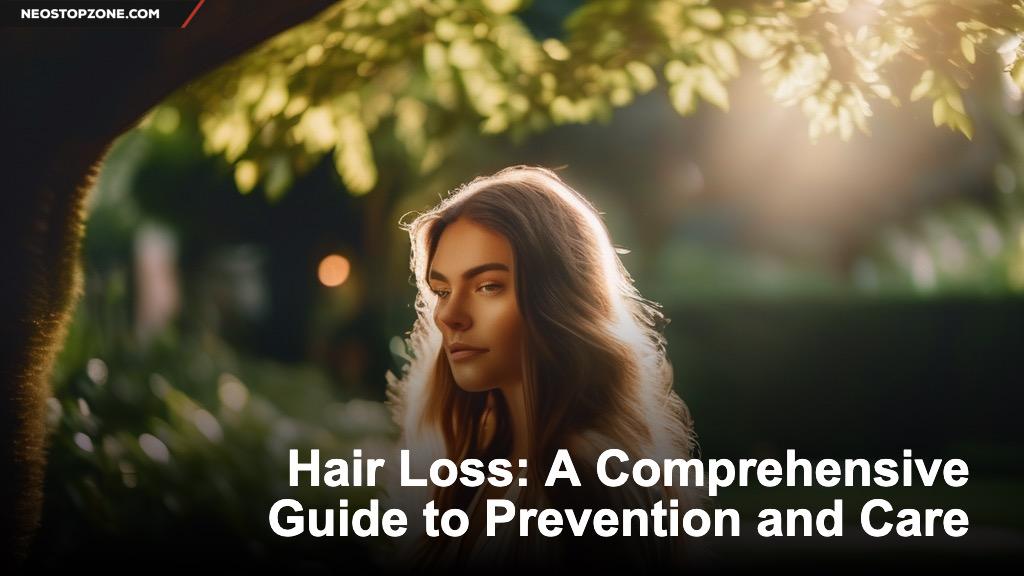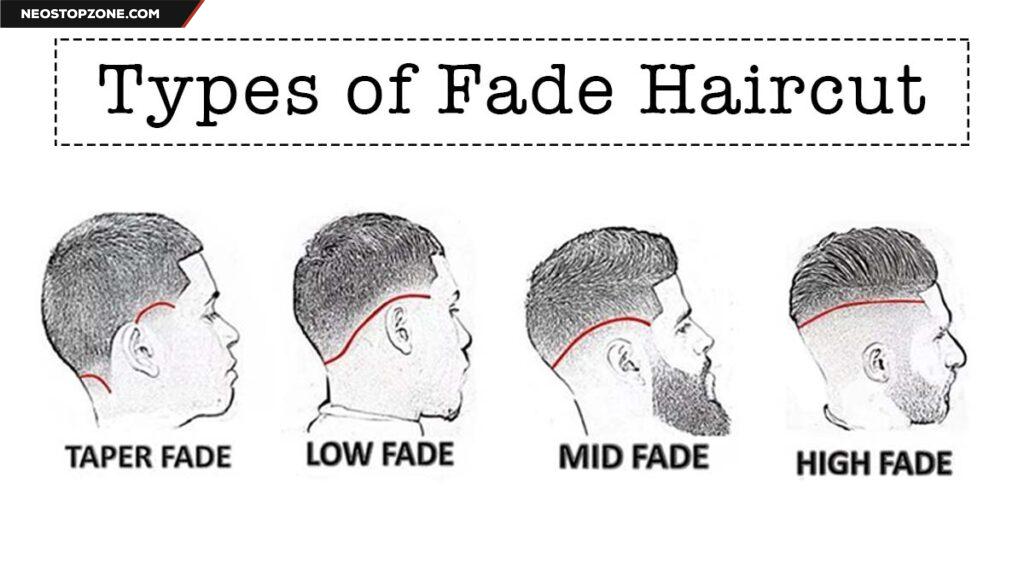
Maintaining luscious locks is more than just a cosmetic concern; it’s a reflection of overall health. Hair loss can be triggered by various factors, from genetics to lifestyle choices. In this comprehensive guide, we’ll explore effective strategies to prevent hair loss and nurture vibrant hair.
Understanding Hair Loss
Before diving into prevention methods, it’s crucial to understand the basics of hair loss. The hair growth cycle consists of three phases: anagen (growth), catagen (transition), and telogen (resting). Shedding a certain amount of hair daily is normal, but when this process becomes excessive, it leads to visible hair loss.
Common Causes of Hair Loss
Genetics and Family History
One of the primary factors influencing hair loss is genetics. If your family has a history of baldness or thinning hair, you might be genetically predisposed to similar conditions.
Hormonal Changes and Imbalances
Fluctuations in hormones, particularly during pregnancy, childbirth, and menopause, can contribute to hair loss. Hormonal imbalances in conditions like polycystic ovary syndrome (PCOS) also play a role.
Poor Nutrition and Dietary Habits
A diet lacking essential nutrients can impact hair health. Insufficient intake of vitamins, minerals, and proteins can weaken hair strands, leading to increased vulnerability to breakage.
Lifestyle Factors
Stress and its Impact on Hair Health
Stress is a silent culprit of many health issues, including hair loss. Chronic stress can disrupt the hair growth cycle, pushing more hair into the shedding phase.
Lack of Sleep and its Connection to Hair Loss
Inadequate sleep affects overall well-being, and it’s no different for your hair. Quality sleep is crucial for the body’s rejuvenation processes, including hair growth.
Overuse of Hairstyling Tools and Products
Excessive use of heat-styling tools, harsh chemicals, and tight hairstyles can damage hair cuticles, making them prone to breakage.
Healthy Hair Habits
Importance of a Balanced Diet for Hair Health
A nutrient-rich diet supports hair growth. Include foods high in vitamins A, C, and E, as well as iron and omega-3 fatty acids for optimal hair health.
Proper Hair Care Routine and Products
Choose hair care products suitable for your hair type. Regular washing, conditioning, and avoiding excessive heat are key components of a proper hair care routine.
Regular Scalp Massages and their Benefits
Scalp massages stimulate blood flow to the hair follicles, promoting nutrient delivery and strengthening the roots.
Natural Remedies for Hair Loss
Aloe Vera and its Soothing Properties
Aloe vera has anti-inflammatory properties that soothe the scalp and promote a healthy environment for hair growth.
Essential Oils for Promoting Hair Growth
Essential oils like lavender, rosemary, and peppermint can be mixed with carrier oils and applied to the scalp for their hair-strengthening effects.
Herbal Supplements for Strengthening Hair
Certain herbal supplements, such as ginseng and saw palmetto, have shown promise in preventing hair loss by addressing underlying causes.
Medical Treatments
Consultation with a Dermatologist
If hair loss persists, seeking professional advice from a dermatologist is crucial. They can identify the root cause and recommend suitable treatments.
FDA-Approved Medications for Hair Loss
Medications like minoxidil and finasteride are FDA-approved and have been proven effective in preventing hair loss and promoting regrowth.
Advanced Treatments like PRP Therapy
Platelet-rich plasma (PRP) therapy involves injecting a concentration of the patient’s own platelets into the scalp to stimulate hair growth.
Preventing Hair Loss in Men and Women
Hair loss may affect men and women differently. Tailoring prevention strategies based on gender-specific considerations enhances effectiveness.
Gender-Specific Tips and Considerations
Men may benefit from specific treatments like topical minoxidil, while women may find success with hormone-regulating medications.
Importance of Early Intervention
Addressing hair loss early increases the likelihood of successful prevention. Recognizing the signs and taking prompt action is essential.
Maintaining Emotional Well-being
The psychological impact of hair loss is profound, affecting self-esteem and mental health. Building a strong support system and employing coping strategies are vital.
Exercise and its Role in Hair Health
Regular exercise improves blood circulation, ensuring that hair follicles receive an ample supply of nutrients for optimal growth.
Improved Blood Circulation and its Effect on Hair
Enhanced blood flow nourishes the hair follicles, promoting a healthier scalp environment conducive to hair growth.
Recommended Exercises for Promoting Hair Growth
Cardiovascular exercises, yoga, and scalp exercises can contribute to improved hair health and reduced stress levels.
Hair Loss Myths and Facts
Dispelling Common Misconceptions about Hair Loss
Separating fact from fiction is crucial. Dispelling myths surrounding hair loss helps individuals make informed decisions about their hair care.
Providing Evidence-Based Information
Backed by scientific evidence, understanding the true causes of hair loss empowers individuals to take meaningful steps toward prevention.
The Psychological Aspect of Hair Loss
Addressing the Emotional Toll of Hair Loss
Acknowledging and addressing the emotional impact of hair loss is integral to a holistic approach to prevention.
Encouraging a Positive Mindset
Cultivating a positive mindset is essential. Hair loss doesn’t define a person’s worth, and embracing one’s unique beauty is key to emotional well-being.
Professional Guidance and Consultation
Importance of Seeking Professional Advice
Individual cases of hair loss can vary widely. Consulting with a professional ensures personalized guidance and tailored solutions.
Tailored Solutions for Individual Cases
Each person’s hair loss journey is unique. Tailored solutions, whether through medications or advanced treatments, optimize results.
Maintaining Results Over Time
Long-Term Commitment to Healthy Hair Practices
Preventing hair loss requires consistency. Adopting and maintaining healthy habits over the long term ensures sustained results.
Periodic Assessments and Adjustments
Regularly reassessing hair health and adjusting preventive measures based on changing conditions is crucial for ongoing success.
Conclusion
In conclusion, preventing hair loss involves a multi-faceted approach encompassing lifestyle changes, proper care, and, when needed, professional interventions. By understanding the intricacies of hair health and implementing the tips and tricks outlined in this guide, individuals can take proactive steps toward maintaining a full and healthy head of hair.
FAQs (Frequently Asked Questions)
Can stress alone cause hair loss?
While stress can contribute to hair loss, it is often a combination of factors that lead to the condition.
Are natural remedies as effective as medical treatments?
Natural remedies can complement preventive measures, but for severe cases, medical treatments may be necessary.
Is hair loss reversible?
In some cases, especially with early intervention, hair loss can be reversible. However, individual results vary.
How often should I reassess my hair care routine?
Periodic assessments are recommended, especially with changes in lifestyle or health conditions.
What role does genetics play in hair loss prevention?
While genetics influence susceptibility to hair loss, preventive measures can still be effective in managing the condition.
